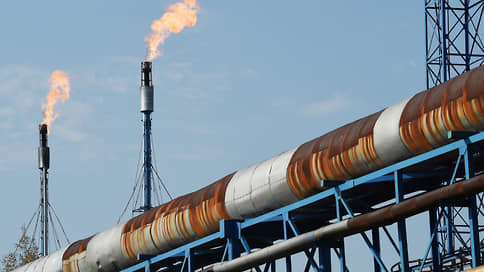Oil companies due to repairs at refineries reduced processing in May by 6%
[ad_1]

Due to repairs at refineries, oil companies reduced processing in May by 6%, to 715,000 tons per day. At the same time, this month, the plants are undergoing a peak of repairs, and already in June, oilmen will increase their load. However, oil companies expect a reduction in refinery margins due to a reduction in the damper, and the increase in wholesale fuel prices has already significantly reduced the attractiveness of fuel sales at filling stations. At the same time, the increase in supply in June may allow wholesale prices to somewhat stabilize.
Daily oil refining in the Russian Federation for 24 days in May decreased by 6.4% compared to the same period last month, to 715.3 thousand tons, sources familiar with the statistics told Kommersant. This is the minimum value for this year. In May, oil companies pass the peak of planned repairs at refineries, and it is expected that oil companies will increase production next month. In annual terms, refining rose by about 2%, as oil production and exports of oil products from Russia suffered a sharp drop in May last year after the outbreak of hostilities in Ukraine.
The decline in oil refining coincided with the intentions of the Ministry of Finance to halve the damper payments to refineries for the supply of gasoline and diesel fuel to the domestic market. These factors, as well as a seasonal increase in demand for fuel, led to a sharp increase in stock prices. Thus, since the beginning of the year, the cost of AI-92 and AI-95 at SPIMEX has added 48%, within two weeks the prices for AI-95 updated their historical highs. The cost of diesel fuel increased by 17%. Last week, gasoline prices began to decline, but on May 29 they went up again. Thus, the exchange value of AI-92 and AI-95 increased by 0.8% and 0.5%, to 52.7 thousand and 60.1 thousand rubles. per ton, respectively.
According to Kommersant’s interlocutors in the industry, the decrease in the cost of fuel occurred after the oil companies increased the volume of supply on the stock exchange at the request of the Ministry of Energy. A Kommersant source in one of the oil companies says that producers expect a decrease in refining margins due to a reduction in the damper, which will create preconditions for fuel prices to rise at gas stations. In addition, Kommersant’s interlocutors expected that due to the deterioration in the profitability of oil refining, oil companies would increase oil exports. Another interlocutor of Kommersant in the fuel market fears that after undergoing repairs, oilmen will sharply increase the export of diesel fuel.
The growth in fuel prices is traditionally observed during the period of increased demand in the spring, while supply is reduced due to the start of repairs at refineries.
After the outbreak of hostilities in Ukraine, which led to the refusal of the world’s largest traders to purchase Russian fuel, due to the resulting surplus, its cost was at its minimum for almost the entire last year. Low wholesale fuel prices allowed filling station operators to remain profitable throughout the year. But the growth of the budget deficit led to the fact that the Ministry of Finance decided to reduce payments on the damper from April, and from July they may decrease even more significantly. However, the draft damper adjustment has not yet been submitted to the State Duma, and if it is not adopted by the end of May, then, according to the law, it will not be able to enter into force on July 1.
Despite the fact that the Ministry of Energy does not expect fuel prices to rise above inflation due to damper adjustments, the increase in wholesale fuel prices has already led to a decrease in the profitability of sales of goods at filling stations to near-zero values. Thus, according to Petromarket, the net trading margin of AI-92 and AI-95 is 0.3 rubles. and 0.6 rubles. for 1 liter of gasoline, respectively. At the same time, companies have already begun to raise prices at gas stations. According to the Moscow Fuel Association, AI-95 and AI-92 rose in price by 10 kopecks over the week. “Retail prices are now stable, and we see that the gross margin of filling stations remains at a high level, so we do not expect such a reflection in retail,” Nikolai Shulginov, the head of the Ministry of Energy, said last week.
Growth in oil refining and production of petroleum products in June may help stabilize wholesale prices, says fuel market analyst Mikhail Turukalov, but much will depend on the dynamics of domestic demand for fuel and on export volumes.
[ad_2]
Source link





